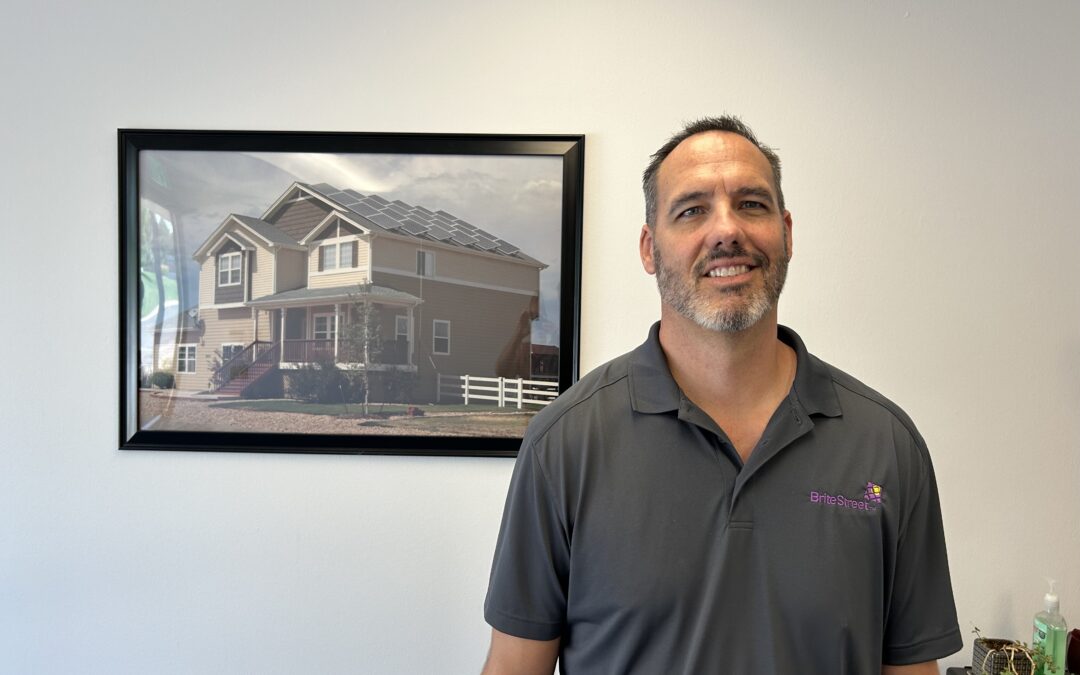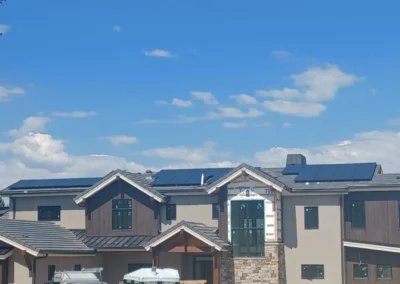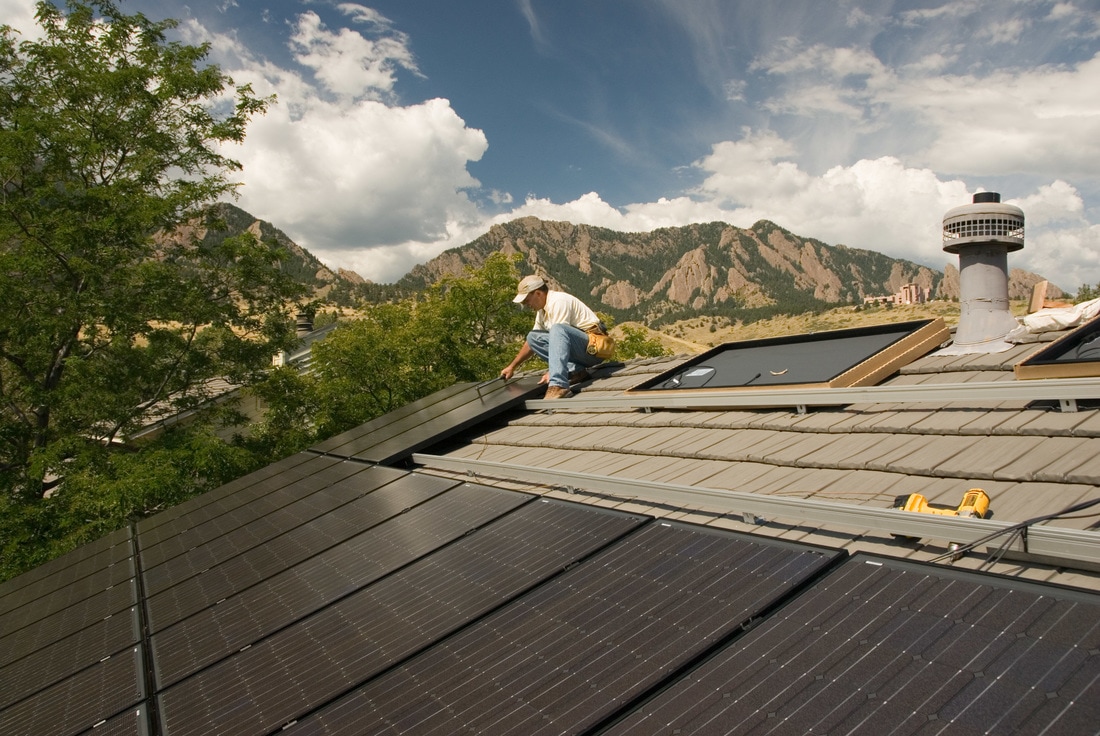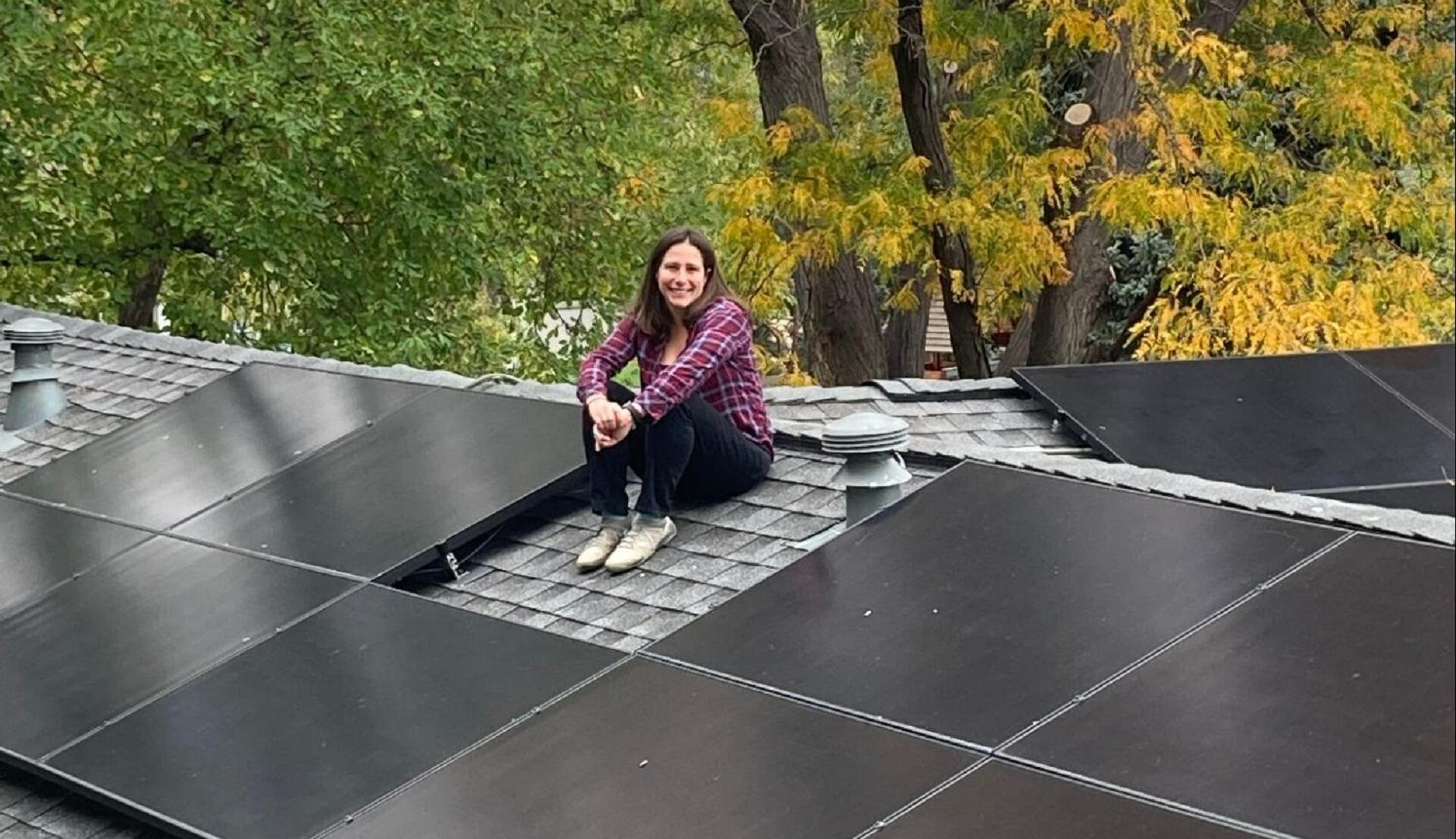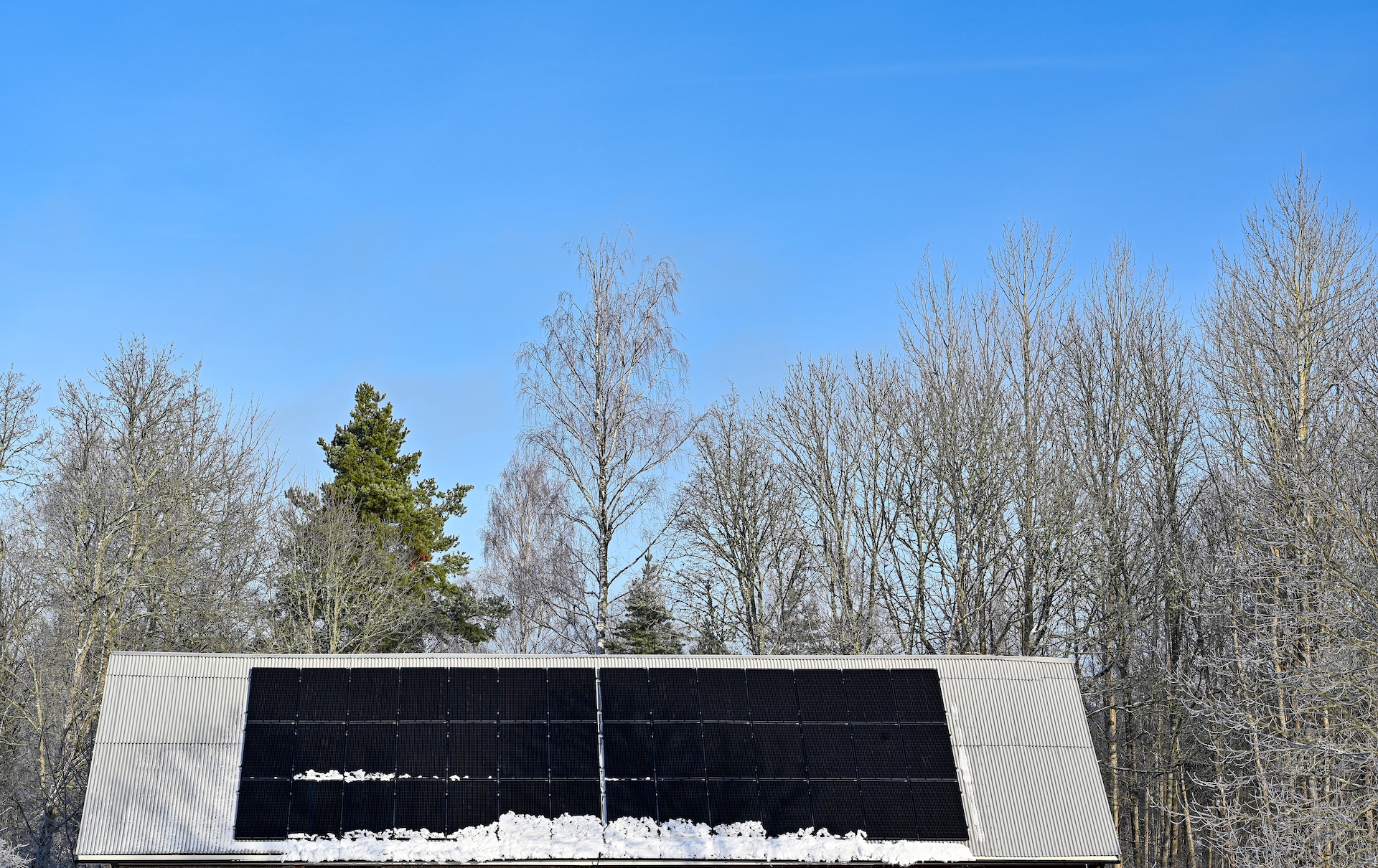Picture this: You’re settling in for the evening when all of a suddon, another Colorado thunderstorm rolls through. The lights flicker once, twice, then go out completly. While your neighbors scramble for flashlights and worry about their spoiled food, your home stays perfectly lit, comfortable, and connected. That’s the power of a whole house battery backup system.
If you’re a Colorado homeowner tired of being at the mercy of unpredictable weather and aging grid infrastructure, you’re not alone. More Front Range families are discovering that battery backup systems aren’t just luxury items—they’re essential investments in comfort, safety, and energy independence.
But here’s the million-dollar question: Do you need a whole home battery backup system, or will partial backup meet your needs?
Let’s cut through the confusion and help you make the smartest choice for your family and your budget.
Why Colorado Homes Need Battery Backup More Than Ever
Colorado’s unique geography and weather patterns create the perfect storm for power outages. Between severe thunderstorms rolling off the Rockies, winter blizzards, and an increasingly strained electrical grid, Colorado homeowners face more outage risks than many realize.
The reality hitting Colorado families:
- Extreme weather events are intensifying – From hailstorms that shut down entire neighborhoods to wind events that topple power lines
- Grid infrastructure is aging – Much of Colorado’s electrical infrastructure was built decades ago and struggles with today’s demands
- Work-from-home dependency – Lost power now means lost income for many Colorado professionals
- Rising energy costs – Xcel Energy and other utilities continue raising rates, making energy independence more attractive
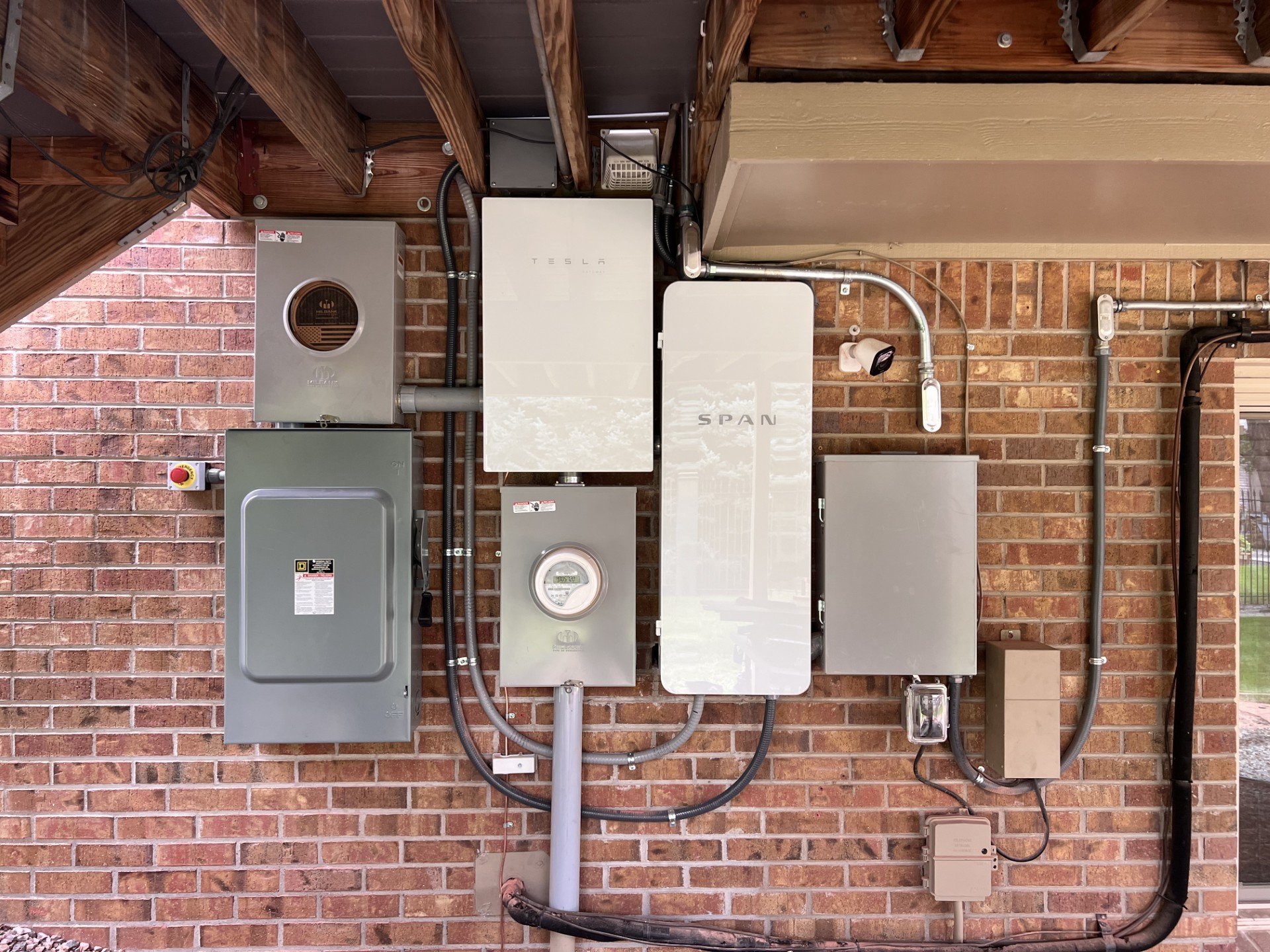 The good news? Colorado offers some of the nation’s best incentives for battery storage systems, making now the perfect time to invest in your home’s energy independence.
The good news? Colorado offers some of the nation’s best incentives for battery storage systems, making now the perfect time to invest in your home’s energy independence.
Whole Home vs. Partial Battery Backup: Understanding Your Options
When you start researching whole home battery backup Colorado solutions, you’ll quickly encounter two main approaches. Let’s break down what each actually means for your daily life.
🏡 Whole Home Battery Backup: Complete Power Independence
A whole home battery backup system powers every circuit in your house during an outage. That means:
- ✅ All lights, outlets, and appliances keep running
- ✅ Central air conditioning and heating continue operating
- ✅ Garage doors, security systems, and smart home devices stay active
- ✅ No need to prioritize which devices are “essential”
- ✅ Life continues exactly as normal during outages
Real Colorado Example: The Henderson family in Parker invested in a whole home system after the 2023 spring storms. “When our entire neighborhood went dark for 18 hours, we didn’t even notice. The kids finished their homework, dinner cooked normally, and we stayed comfortable all night. Our neighbors were amazed!”
⚡ Partial Battery Backup: Strategic Power Protection
Partial backup systems focus on your critical loads—the essentials you absolutely need during an outage:
- ✅ Refrigerator and freezer protection
- ✅ Internet/WiFi for connectivity
- ✅ Essential lighting in key rooms
- ✅ Medical equipment and devices
- ✅ Phone charging and basic electronics
- ✅ Sump pump (if applicable)
Real Colorado Example: The Martinez family in Highlands Ranch chose partial backup focusing on their home office, kitchen essentials, and master bedroom. “We save thousands compared to whole home, but still have everything we truly need during outages. Perfect for our situation.”
Who Should Choose Whole Home Battery Backup?
Whole home systems make the most sense for Colorado homeowners who:
- 🏘️ Have larger homes with high energy needs or multiple family members
- ⚕️ Rely on medical equipment that requires consistent power (CPAP machines, oxygen concentrators, etc.)
- 🏔️ Live in rural or mountain areas where outages are more frequent and longer-lasting
- 💼 Run home businesses where any downtime means lost revenue
- 🎯 Want zero compromise on comfort and convenience during outages
- 💰 Can invest in the premium solution without straining their budget
When Partial Backup is the Smart Choice
For most Colorado families, partial backup hits the sweet spot of protection and affordability:
- 🏡 Smaller to medium-sized homes with manageable energy needs
- 💡 Budget-conscious families who want protection without premium pricing
- 🔧 DIY-friendly homeowners who don’t mind managing which devices stay on
- 📈 Future planners who want to start with essentials and expand later
- ⚡ Energy-efficient households already minimizing power consumption
Colorado’s Game-Changing Battery Storage Incentives
Here’s where Colorado homeowners catch a major break. The state’s incentive structure makes battery storage remarkably affordable:
💰 Federal Incentives
- 30% Federal Tax Credit on total system cost (equipment + installation)
- No income restrictions or spending caps
- Available through 2032
- Includes labor, permitting, and inspection costs
🏔️ Colorado State Benefits
- 10% State Tax Credit on eligible battery equipment
- Stacks with federal incentives for maximum savings
- File DR 1307 form with your state taxes
⚡ Xcel Energy Rebates (2025 Program)
For Xcel Energy customers, the savings get even better:
- $4,025 to $5,000 upfront rebate (Tesla Powerwall 3 or Enphase systems)
- $100 annual participation bonus for 5 years
- Stacks with federal and state incentives
- Must allow occasional grid support (up to 60 times annually)
🏙️ Local Incentives
- Denver residents: Up to $2,750 additional rebate
- Fort Collins: $150 per kWh capacity, up to $3,000
- Check with your local utility for additional programs
Real Numbers Example:
A $25,000 whole home battery system could cost just $11,750 after all incentives:
- Original cost: $25,000
- Federal tax credit (30%): -$7,500
- Colorado state credit (10%): -$2,500
- Xcel Energy rebate: -$5,000
- Final cost: $11,750

Colorado-Specific Battery Storage FAQs
Q: Can I add battery backup to my existing solar system?
A: Absolutely! Most modern solar systems can be retrofitted with battery storage. BriteStreet Solar specializes in seamless integration with existing installations, ensuring maximum efficiency and warranty protection.
Q: How do batteries perform in Colorado’s extreme temperatures?
A: Modern lithium batteries are engineered for Colorado’s temperature swings. Systems like the Tesla Powerwall 3 and Enphase batteries operate efficiently from -4°F to 122°F, covering Colorado’s typical range with room to spare.
Q: Will my battery backup work during a blizzard?
A: Yes! Battery systems provide power regardless of weather conditions. If you have solar panels, they can recharge your batteries even on cloudy days, though snow coverage may temporarily reduce charging efficiency.
Q: How long will my battery last during an outage?
A: This depends on your energy usage and battery capacity:
- Whole home systems: Typically 8-24 hours of normal usage
- Partial backup systems: 24-72 hours focusing on essentials
- With solar recharging: Potentially indefinite backup power
Q: What happens if I need more capacity later?
A: Most systems are expandable. You can start with partial backup and add more batteries or circuits as your needs grow. This is one of the smartest approaches for budget-conscious homeowners.
Q: Do I need permits for battery installation?
A: Yes, battery systems require electrical permits. Professional installers like BriteStreet Solar handle all permitting, inspections, and utility interconnection paperwork.
Q: How do I know if my home is a good candidate?
A: Key factors include:
- Existing electrical panel capacity
- Available installation space (indoor/outdoor)
- Current energy usage patterns
- Local utility requirements
- HOA restrictions (if applicable)
Q: What maintenance do battery systems require?
A: Modern lithium batteries require minimal maintenance:
- Annual visual inspections
- Monitoring system performance via smartphone apps
- Occasional firmware updates (usually automatic)
- 10-15 year expected lifespan with degradation warranties
Choosing Your Battery Backup Strategy
Still unsure whether whole home or partial backup makes sense for your situation? Here’s a practical decision framework:
✅ Go with Whole Home Battery Backup If:
- You want zero lifestyle changes during outages
- Someone in your home has critical medical needs
- You frequently work from home
- Outages in your area typically last 12+ hours
- You have the budget for the premium solution
- Your home has high energy demands
✅ Choose Partial Battery Backup If:
- You’re budget-conscious but want meaningful protection
- You can prioritize essential vs. non-essential devices
- Your home has moderate energy needs
- You want room to expand the system later
- Short outages (under 8 hours) are most common in your area
🤔 Need Help Deciding?
The best choice depends on your specific situation, home, and priorities. That’s where expert consultation makes all the difference.
Why Colorado Homeowners Choose BriteStreet Solar
As Colorado’s #1 solar installation company, BriteStreet Solar brings over 12 years of local experience to every battery backup project. Here’s what sets us apart:
🏔️ Colorado Expertise
- Deep understanding of local weather challenges
- Experience with all major utility requirements
- Knowledge of every available incentive and rebate
- NABCEP Certified
🛠️ Complete Solutions
- Design custom systems for your specific needs
- Handle all permits, inspections, and utility connections
- Provide ongoing monitoring and support
⚡ Premium Equipment
- Authorized installer for Tesla Powerwall 3
- Enphase battery systems for maximum flexibility
- Only the highest-quality, Colorado-tested components
💪 Proven Track Record
- Thousands of successful installations across Colorado
- A+ Better Business Bureau rating
- Comprehensive warranties and ongoing support
Real Colorado Customer Success Stories
Whole Home Success – The Wilson Family, Highlands Ranch
“We chose whole home backup after our elderly mother moved in with us. Her oxygen concentrator and other medical equipment can’t afford any interruptions. During the windstorm last March, we were the only house on our street with power. The peace of mind is worth every penny.”
- System Details: Tesla Powerwall 3 with 40kWh total capacity
- Total Investment: $28,000 (before incentives)
- After Incentives: $12,600
- Backup Duration: 18-24 hours of normal usage
Partial Backup Success – The Chen Family, Denver
“We focused our backup on the home office, kitchen essentials, and our security system. During the storm outages in May, we stayed productive working from home while our neighbors dealt with spoiled food and dead internet. Perfect solution for our needs.”
- System Details: Enphase IQ Battery 10 (20kWh total)
- Total Investment: $18,000 (before incentives)
- After Incentives: $8,100
- Backup Duration: 48-72 hours on essentials
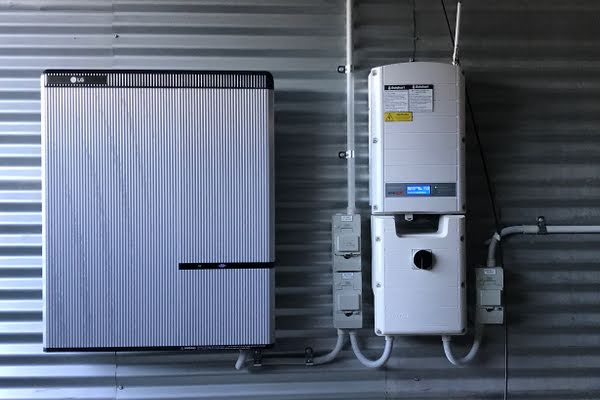
Taking Action: Your Next Steps
Colorado’s battery storage incentives won’t last forever, and supply chain considerations mean the best time to act is now. Here’s how to move forward:
1. Get Your Custom Assessment
Every home is different. Our experts will evaluate your:
- Current energy usage patterns
- Existing electrical infrastructure
- Backup power priorities
- Budget and financing options
- Available incentives and rebates
2. Design Your Perfect System
Whether you choose whole home or partial backup, we’ll design a system that:
- Meets your specific power needs
- Maximizes available incentives
- Provides room for future expansion
- Integrates seamlessly with existing solar (if applicable)
3. Professional Installation
Our experienced Colorado teams handle:
- All necessary permits and inspections
- Safe, code-compliant installation
- Utility interconnection and approval
- System commissioning and testing
- Complete homeowner training
4. Ongoing Support
Your relationship with BriteStreet Solar continues long after installation:
- 24/7 system monitoring
- Performance optimization
- Warranty support and maintenance
- Future expansion planning
Ready to Take Control of Your Power?
Don’t let the next Colorado storm catch you powerless. Whether you’re interested in whole home battery backup Colorado solutions or strategic partial backup systems, BriteStreet Solar has the expertise to design and install the perfect system for your needs.
Get started with your free, no-obligation consultation:
Our Colorado battery storage experts are standing by to answer your questions, assess your home’s needs, and provide a custom quote that includes all available incentives and rebates.
Limited Time: Current Xcel Energy rebate program caps at $5,000 and may have limited availability. Don’t wait to secure your spot.

